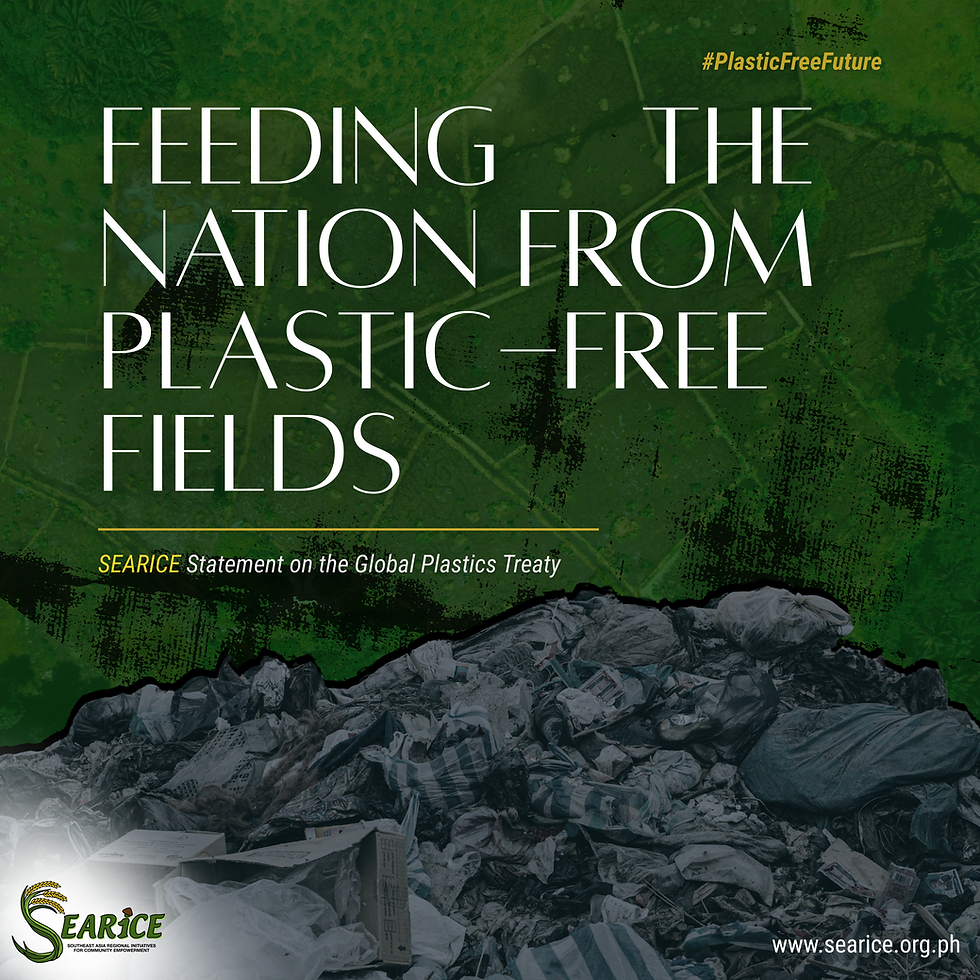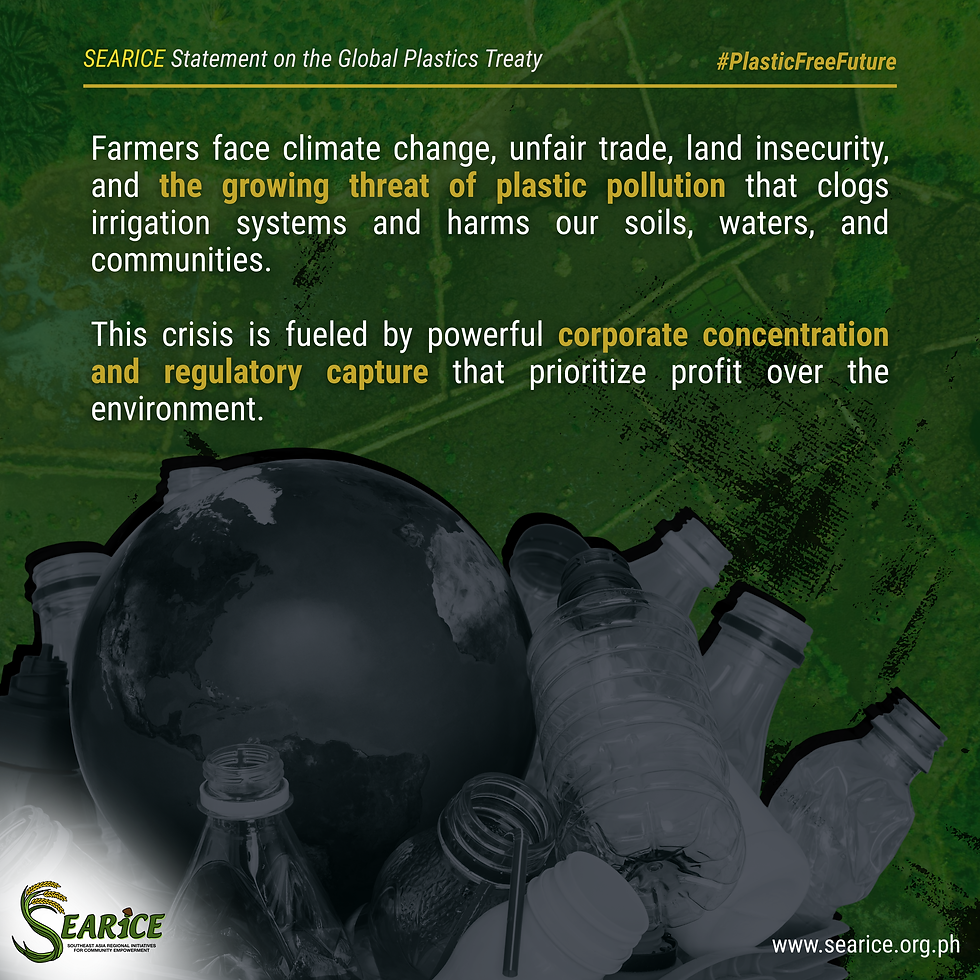Feeding the Nation from Plastic-Free Fields
- Aug 13, 2025
- 2 min read
SEARICE Statement on the Global Plastics Treaty

Across the Philippines, farmers confront not only climate change, unfair trade, and land insecurity, but also the growing threat of plastic pollution. This crisis is fueled by powerful corporate concentration and regulatory capture that prioritize profit over the environment and deepen the vulnerability of farming communities. From mulch film breaking down into microplastics to packaging waste from farm inputs, plastic has clogged irrigation systems and seeped into the heart of our food systems, threatening the health of our soil, waters, and communities.

This is not an isolated problem. The global plastic economy driven by overproduction, corporate profit, and a culture of disposability exploits natural resources and the labor of those who feed us. Microplastics have been found in agricultural soils at rates up to 23 times higher than in oceans, endangering soil health, biodiversity, and food safety. For smallholder farmers in the Global South, plastic pollution deepens existing injustices: degraded farmland, loss of biodiversity, and dependence on costly, unsustainable inputs. In rural areas with limited waste management, plastic lingers as a hazard that farmers cannot simply “throw away,” making this crisis not only environmental but deeply human.
As negotiators finalize the Global Plastics Treaty on August 14 in Geneva, Switzerland, the stakes for food sovereignty could not be higher. A treaty that fails to confront the root causes—overproduction and lack of corporate accountability—will leave farmers and communities to bear the brunt. We cannot afford a weak agreement riddled with loopholes. The treaty must reduce plastic production, hold polluters accountable, and protect the rights and livelihoods of those most impacted, including farmers.

At SEARICE, we believe food sovereignty is impossible in a system dependent on plastics. We call on the Intergovernmental Negotiating Committee (INC) to adopt a strong, binding treaty that addresses the full life cycle of plastics—from extraction and production to consumption and waste—and prioritizes human rights, environmental justice, and food sovereignty. Real solutions mean reducing plastic at the source, transitioning to agroecological farming that restores biodiversity, and ensuring farmers have the resources, knowledge, and autonomy to produce food free from toxic pollutants.
When farmers thrive, the world is fed. From the breath of our soils, to the heartbeat of our seeds, to the lifeblood of our seas—here lies the vitality of our people. On August 14, and every day after, we urge governments to stand with farmers and frontline communities: commit to a treaty that tackles the plastic crisis at its root, holds polluters accountable, and protects the right to safe, healthy, and ecologically sound food systems for all.

Let us not trade our future for convenience wrapped in plastic. The time for action is now.

